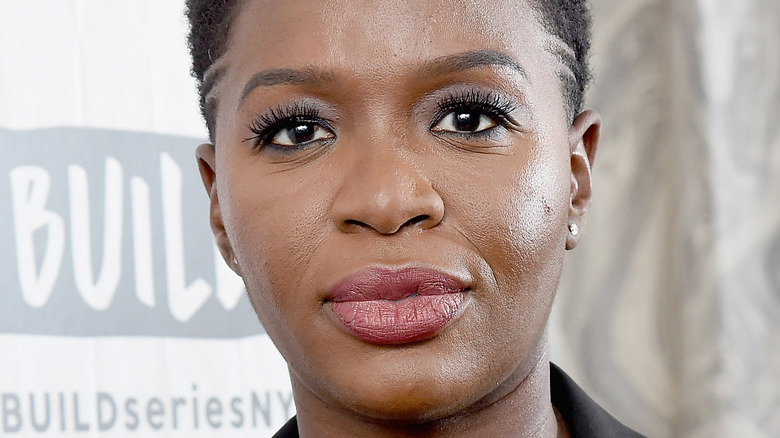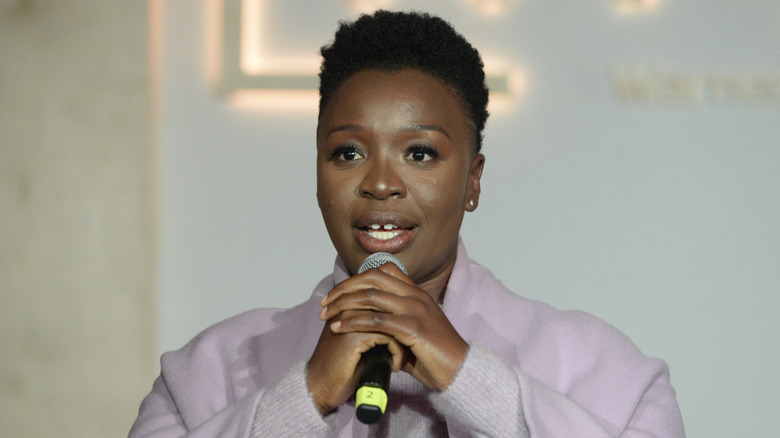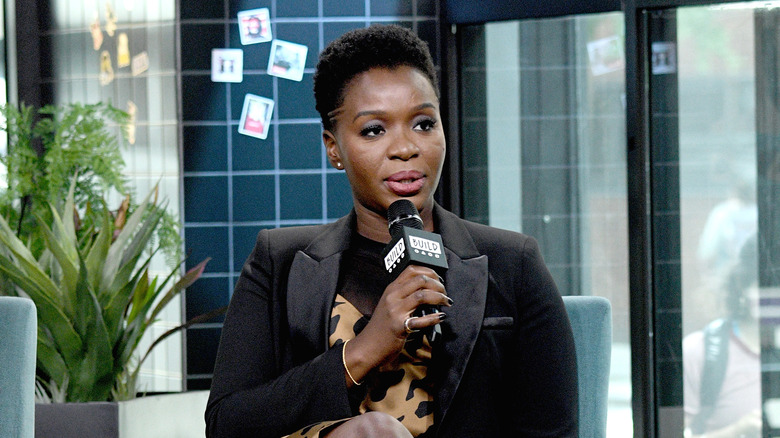Folake Olowofoyeku On Endometriosis Trauma And Its Effect On Mental Health - Exclusive
Audiences know Folake Olowofoyeku from her hit CBS comedy "Bob Hearts Abishola," where she plays Nigerian cardiac nurse and single mom Abishola who falls for a patient in her care, played by Billy Gardell. In real life, Olowofoyeku struggled for years with debilitating menstrual pain before eventually being diagnosed with endometriosis in 2019.
"There's no way to emote it. I don't think I ever cried from it because the crying was not going to help," she told Health Digest in an exclusive interview. Complicating matters is that she, like her character, grew up in Nigeria, where medical treatment is far behind that of the U.S.
Olowofoyeku is one of over 190 million people affected by endometriosis, per Frontiers in Global Women's Health. The disease, marked by uterine tissue that grows outside the uterus, is largely misunderstood and difficult to diagnose, according to the Endometriosis Foundation of America. To raise awareness and educate others about endometriosis, including its effects on mental health, Folake Olowofoyeku shared her story with Health Digest.
The effect endometriosis has had on her mental health
Endometriosis impacted Folake Olowofoyeku's mental health as well as her physical health from the time she was 13. "I didn't have a language for it. I'd never experienced it before, and most people think a level of pain is normal during your period," she said. "They probably thought it was a normal level of pain, but it wasn't."
The amount of pain medication she took was also traumatizing. "It didn't help, and I'm sure it caused more harm than good in the long run," she said.
Later, she started bringing a friend to vouch for her because she felt that doctors didn't believe her. "The disbelief was almost worse than the pain sometimes," she explained. "Every time I had to switch to a new doctor, part of the dismay of doing so was that now, I had to convince this new person who was going to look at me suspiciously."
Now pain-free after undergoing laparoscopic excision surgery in spring 2022, she's processing the trauma. "It's interesting because I feel like I'm understanding the effects of it now that I'm outside of it, now that I know what it is to live a normal life," she said. "I'm still coming to terms with a lot of what is different because it's taken a little while for my brain to catch up with the fact that I'm not dealing with that anymore."
Folake Olowofoyeku says destigmatizing issues around women's reproductive health could help others
Olowofoyeku told Health Digest how her life was dominated by the mental and physical pain she suffered for decades, saying, "To be honest, it was only about one [normal, pain-free] week a month [that] I had [prior to the surgery], because one week was the anticipation of the pain that was about to come. Then one week was the pain, and then the next week, the third week was getting over the exhaustion your body has gone through.
She said, "I wonder about the effects of chronic pain on the psyche, now that I'm out of it ... I wonder about the effects of that. That's something we should, first, be cognizant of as individuals with people in our life personally who are dealing with this sort of pain."
Women's reproductive health is rarely talked about publicly, so women are often unaware of how pervasive these issues are. "There's a stigma on women's health and reproductive health and any issues surrounding it. It seems like that makes it worse," she said. "I know it sounds cliché, but by talking about it, I hope that more people will feel comfortable talking about it and will find a solution."
New episodes of "Bob Hearts Abishola" air Tuesday nights on CBS at 8:30 p.m. ET. Visit the Endometriosis Foundation of America website to learn more and get involved.



